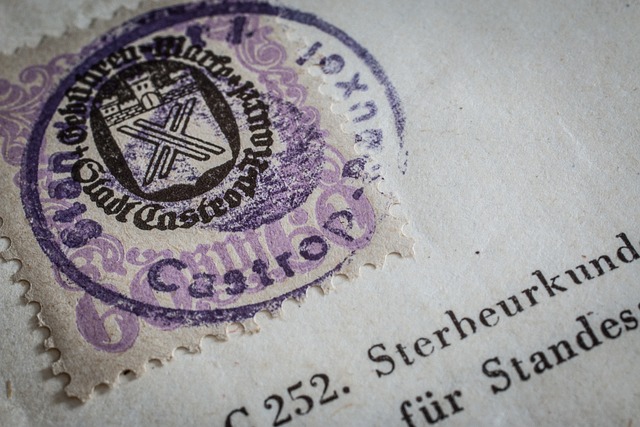Notarised translation services UK are essential for individuals and organizations dealing with official documents that require precise language and legal validation across different languages. These services ensure that translations for legal, governmental, educational, and corporate sectors are accurate, authentic, and hold full legal validity. Certified translators, after their work is authenticated by a public notary, provide translations that mirror the original documents precisely, preserving all legal nuances. This process is critical for international students, expatriates, immigrants, and businesses, as it ensures documents in both English and foreign languages are accepted by UK government departments, courts, and institutions. Notarisation adds a layer of security to prevent fraud, while legalisation under The Hague Apostille Convention makes these translations acceptable by foreign authorities. The UK's notarised translation services meet high standards, with accredited professionals offering precise translations that navigate legal language and cultural nuances. These services are accessible through reputable online platforms that provide feedback and ratings for user confidence in selecting a service compliant with British law, ensuring efficient and legally sound translations for official use within the UK or internationally.
Navigating the intersections of legal and linguistic accuracy is paramount, especially when official documents cross international borders. This article delves into the indispensable role of professional notarized translation services in the UK, illuminating their significance for individuals and organizations alike. We explore the critical steps to ensure your translations meet legal standards, the nuances of the translation process, and how to identify trustworthy service providers. With a focus on ‘notarised translation services UK’, this guide will empower you with the knowledge to handle official documents confidently in diverse linguistic contexts.
- Understanding the Importance of Notarized Translation Services in the UK
- The Role of Official Translations and Legalization for International Documents
- Finding Reliable Notarised Translation Providers in the UK
- Steps Involved in Obtaining a Notarised Translation for Official Use
Understanding the Importance of Notarized Translation Services in the UK

In the UK, where legal and official documents are concerned, precision and authenticity are paramount. Notarized translation services in the UK play a critical role in facilitating cross-language communication for legal, governmental, educational, and corporate entities. These services ensure that translations are not only accurate but also carry the necessary legal weight. A certified translator, after having their work authenticated by a public notary, verifies that the translated document reflects the exact content of the original with all legal implications intact. This process is essential for international students, expatriates, immigrants, and businesses operating within or across UK borders, as it guarantees the acceptance of documents in both English and foreign languages by government departments, courts, and institutions. The notarisation of translations by a notary public in the UK safeguards against fraudulent activities and misrepresentation of information, providing assurance that translated documents are a true representation of their source texts. This is particularly important for official purposes such as visa applications, legal proceedings, academic credentials evaluation, and contractual agreements, where minor discrepancies could lead to significant complications or denials of services. Thus, notarised translation services UK are an indispensable bridge enabling seamless interaction in our multilingual society, ensuring that all parties involved can trust the integrity and accuracy of the translated content.
The Role of Official Translations and Legalization for International Documents

Navigating the complexities of international documentation often necessitates the precise service of professional notarised translation services in the UK. These translations play a pivotal role in ensuring that official documents, such as legal contracts, academic certificates, and corporate records, are accurately conveyed across language barriers. The process of notarisation confirms the identity of both the translator and the signatory, safeguarding the integrity and reliability of the translated content. This is particularly crucial for international businesses operating in multilingual environments or individuals relocating abroad who must present official documents that are certified to meet legal standards.
The legalisation of translated documents adds another layer of verification, transforming the notarised translations into a form that can be accepted by foreign authorities and institutions. This step is essential for documents to be recognised and accepted in countries that are members of The Hague Apostille Convention. In the UK, the Foreign and Commonwealth Office (FCO) provides such legalisation services, ensuring that translations meet both the notarised and apostilled standards required for international use. Whether for educational credentials, commercial transactions, or legal proceedings, utilising notarised translation services UK-based ensures that documents are accurately translated and legally certified, facilitating smooth interactions across borders.
Finding Reliable Notarised Translation Providers in the UK

When the need arises for official documents to be translated and notarised in the UK, locating a reliable service provider is paramount. The United Kingdom boasts a robust network of professional notarised translation services that cater to a diverse clientele, including individuals, legal entities, and government agencies. These services are crucial for ensuring that translated documents hold the same legal weight as their original versions, which is essential for various official purposes such as immigration procedures, legal cases, and international trade. To ensure accuracy and compliance with UK legal standards, it’s advisable to choose a provider that holds accreditation from relevant professional bodies, like the Institute of Translation & Interpreting (ITI) or the Chartered Institute of Linguists (CIOL). Additionally, selecting a service with notaries public who are registered with the Faculty Office of the Archbishop of Canterbury or equivalent authorities ensures that the translation and notarisation processes meet the stringent requirements set forth by UK law. In the digital age, leveraging online platforms that list vetted notarised translation services in the UK can streamline the search for a trustworthy provider. These platforms often feature user reviews and ratings, providing an additional layer of assurance when selecting a service that aligns with one’s specific needs and official requirements.
Steps Involved in Obtaining a Notarised Translation for Official Use

When the need arises to use a document in an official capacity across different countries, or even within the UK for bilingual affairs, a notarised translation becomes imperative. The process of obtaining a notarised translation for official use in the UK is both systematic and stringent, ensuring the accuracy and authenticity of the translated content. Initially, one must select a reputable notarised translation service provider within the UK, such as those accredited by the relevant professional bodies like the Institute of Translation and Interpreting (ITI) or the Chartered Institute of Linguists (CIOL). These professionals are adept at navigating the intricacies of legal language and cultural nuances that can significantly alter the meaning of a text.
Once the translation service is engaged, the document in question is reviewed to establish its scope and the target language required. The translator then proceeds with the translation process, meticulously converting the content into the specified language while retaining the original meaning and intent. This phase demands not only linguistic proficiency but also a deep understanding of legal terminologies and context. Upon completion, the translated document is subjected to a thorough examination by a qualified translator who did not participate in the initial translation. This second-step review ensures that no discrepancies or misinterpretations have occurred.
After the translation has been confirmed accurate, it is then delivered to a solicitor or public notary for notarisation. The notary will verify the identity of the translator and the author of the original document, attesting to the authenticity of both the content and the translation process. Finally, the notary applies their official stamp and signature to the translated document, certifying that it is a true and accurate representation of the original text. This notarised translation can then be used for its intended official purpose, providing assurance to institutions or individuals who require verifiable, precise translations.
In concluding, the necessity of notarised translation services within the UK, particularly in official capacities, cannot be overstated. These services ensure that translations are accurate and legally recognized across international borders, facilitating a wide array of legal, educational, and commercial endeavours. When engaging with entities outside of the UK, having documents accurately translated and notarised is paramount for legitimacy and compliance with both local and foreign regulations. Businesses and individuals alike must seek out reputable providers offering notarised translation services UK to navigate this complex landscape effectively. By adhering to the established processes and utilizing reliable translators, one can confidently present translated documents that will be honoured and accepted as authentic. Thus, for those needing to bridge language barriers for official purposes, notarised translations stand as a critical tool in an increasingly interconnected world.
